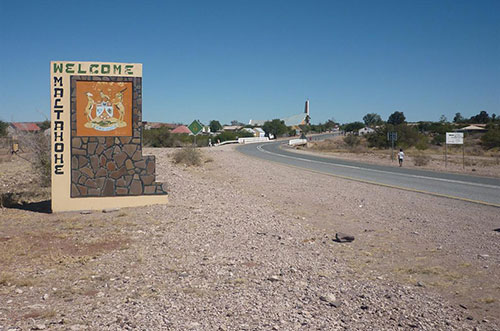Residents of Maltahöhe have expressed serious concern about the level of alcohol and drug abuse among the village’s young population, habits that threaten their well-being.
These concerns were brought to light during last year’s outreach visits by the National Council to Hardap and Omaheke regions.
The findings are captured in a recent report by National Council chairperson Lukas Muha.
The visit was to engage with local communities, comprehend their challenges, and propose remedial interventions.
Throughout the outreach initiative, several pressing issues were identified.
Alcohol and drug abuse among young people, teenage pregnancy, unemployment, inadequate infrastructure and the neglect of marginalised communities stood head and shoulders above the challenges confronting inhabitants in the regions.
Also, due to the prevalence of teenage pregnancies among school-going learners, the two communities also emphasised the need to review policies governing teenage pregnancy in Namibia.
Drowning
The Muha report attributes the rise of alcohol and drug abuse in Maltahöhe to unemployment.
“Unemployment is very high despite the area having tourism attraction features,” states the report.
During the visit to the Aranos constituency, the regional councillor and community members presented various submissions and recommendations to address pressing issues such as the uncontrolled expansion of the informal settlement, resulting from the implementation of the minimum wage for farmworkers, leading to farmers retrenching workers and leaving them unemployed in the town.
“They also complained of the exploitation of farmworkers in the surrounding farms, prompting the regional councillor’s request for the Ministry of Labour, Industrial Relations, and Employment Creation to station a staff member at the constituency office,” reads the report.
Community members also raised concerns regarding an urgent need for distribution of drought relief food and reintroduction of the food bank for vulnerable people which was affected by the minimum wage implementation.
The community further lacks a sewerage system; the absence thereof leads to unhygienic conditions and mosquito infestation. They are also calling for the prioritisation of locals in entry-level jobs.
Recommendations
During the visits, community members had proposals of their own for the national discourse.
Chiefly, they want the Local Authorities Act amended to establish minimum academic qualification requirements for local authority councillors, paying local authority councillors salaries instead of allowances to prevent corruption, and urgency in prioritising the allocation of resettlement farms to locals to enhance food security efforts.
They also lamented the minuscule budgetary allocation to the sports ministry year-in-year-out.
Issues surrounding the abuse of children’s social grants by some beneficiaries were also raised.
Omaheke
During the outreach programme, a courtesy call was made to the Omaheke governor Pijoo Nganate, who highlighted the general lack of visibility and consultations by members of parliament regarding bills under discussion in parliament.
The governor also complained about water scarcity issues in certain areas in the region, such as Otjombinde.
The council also visited the Otjombinde constituency, where poor infrastructure, including a lack of health facilities and housing was observed.
Stock theft and the need for electricity at Okatumba Gate, a fast-growing growth point, are other major challenges.
In the Otjinene constituency, the delegation visited C. Ngatjizeko Primary School, where the absence of a school hall was evident.
“The youth of the constituency expressed concerns about the lack of communication, limited police visibility leading to higher crime rates, complex loan requirements for business start-ups, and the dormant state of the Otjinene Youth Forum,” the report states.
They also raised issues regarding the neglect of San people, high dropout rates among learners from San communities, and ineffective operations of the marginalised office.
In the Okorukambe constituency, the delegation paid a courtesy call to the #Kao-//’aesi Traditional Authority and engaged with the Skoonheid community.
Concerns were raised about the deprivation of rights and abuse of the San people, the changing ownership dynamics of the Skoonheid resettlement farm, the lack of feedback from relevant authorities, and inadequate infrastructure.
Recommendations
Based on their findings from the outreach programme, several recommendations were put forth to address the identified issues.
These include considering the proposal to allocate fishing quotas to regional councils instead of individuals, and reviewing the Local Authority Act to establish minimum academic requirements for candidates in local authority elections.
The Muha report recommended monitoring and assessing the progress and challenges faced in implementing youth enterprise projects under the Harambee Prosperity Plan and reviving the Otjinene Constituency Youth Forum in collaboration with the regional councillor and the Omaheke Regional Youth Forum.
The report further recommends addressing the lack of police visibility and high crime rates in Aranos and Otjinene through engagement with the communities.
– ashikololo@nepc.com.na


